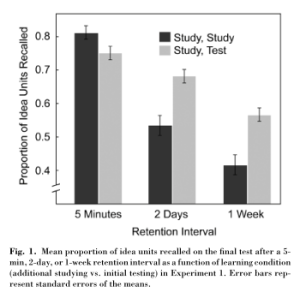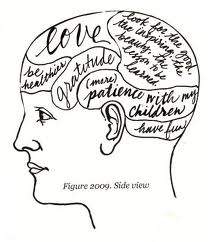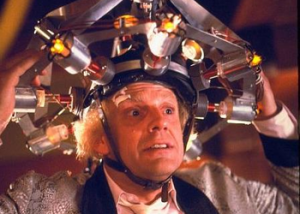So we all know the research module shook things up this year by removing the weekly tests and introducing the new blogging system. Therefore, it seems only fitting that for my final blog I should weigh up whether this has been a worthwhile change. I would suggest that although interesting, thought provoking and ‘easy marks’ I do not think they have been a useful aid to learning the foundations of research methods and statistics that will help me in the completion on my degree.
Firstly, I want to start by saying why I believe blogs were chosen to replace testing. To me it seems the blogs were implemented to engage students in thinking about the subject, whether that be ethics, evaluation, statistic related issues or simply how research has narrowed it’s population by its use of ‘jargon’. The blogs have most definitely captivated students, for me personally I have thought about, the area of research in particular, in a much more in depth way and I am constantly formulating opinions and ideas based on blogs I have read.
However, this new found skill is promptly turned off my blogs and comments are done. Blogs require a limited amount of time to create, this time is usually highly intense, however it only lasts a short period. Once that moment has passed I breathe a sigh of relief and return to my own little world. Therefore, my main point of contention is that I am not learning about research and statistics, I am learning how to write a blog in a way that will get me the required grade. Once the blog is finished, I “forget”.

Now, I use “forget” lightly, I’m sure deep down the skill I used is bumming around in my subconscious, waiting to be tapped into, but I am also in no doubt, that to bring that skill to the surface will require me to relearn. Therefore, regardless of whether I completed blogs this year or not, my third year is STILL going to require me to recapture these ablites. I believe the main reason for this is the lack of rehearsal, it has been found that rehearsal substantially aids memory retention and ultimately learning by moving information from the short-term memory into the long-term memory (Atkinson & Shiffrin, 1968). However, we were allowed to pick any topic, this created a huge diversity in the subjects being written about and therefore I rarely built on the same skills, for some blogs and comments I would be reading/writing about ethics, for others I’m trying to get my head around correlation and causation or even reliability vs validity. Furthermore, regardless of skills learnt it created a hugely diverse content, luckily we had testing in year 1, the majority of the items I read built on items I learnt previously by testing, so that made things easier. This variation substantially hindered my ability to learn and retain the information being thrown at me. Perhaps future years could have to blog about a specific items each week, the blog could be anywhere within the realm of that item, therefore using the same skills, but at the same time keeping things fresh for the commenters, using the same item would in all chances aid rehearsal as although blogs could be different they’re likely to be based around the same subject.

I mention the use of different skills, by this I am referring to whether we’re reading a paper and critically analysing it, or adding to a description of validity, perhaps even trying to learn about a new terminology such as the “file draw effect”. All these skills could have to be used as once and therefore by the time I’m done, all that has been achieved is my ability to tick the boxes for the marking guidelines and I would usually be hugely stressed with my head about to explode with new information.
So, the blogs replaced the weekly tests, I’m not a fan of blogging, I even resent the fact of being coerced into having another form of cyber-space commitment. However, what really does produce the most long lasting effects that will ultimately help me with my degree; blogs or tests? Well, according to the Testing effect , testing enhances learning. Although many people are not a fan of testing, and I get why….you actually have to learn the subject rather than having a week to read and rewrite things you find on the internet so blogs seem easier. However in the long run, surely it would be easier if we did actually learn the subject, i think the graph below shows nicely what I’m trying to say. In the first condition, I’ve learnt how to tick the guideline boxes and done well, however when retested later it becomes clear I haven’t learnt as much as a I would have done had I actually been tested, this pattern continues, and by the time summer has passed and I’m in year 3…what then? I’ve got a nice blogging history that has taught me diddely squat.

So in conclusion, has blogging been a useful learning technique and built the foundations for me to nail my third year? I would suggests no. I’m sure there are many people out there who have enjoyed blogs, but I am not one of them, they’re too time consuming for the amount of information learnt. I do however feel blogging could be made more conducive to learning should the topics be specific each week, aiding rehearsal.
No comments simply saying, “I actually enjoyed the blogs”, “some people aren’t good at tests”. Particularly the latter, it’s a stupid argument that can be applied to most things, for example, some people (like myself) are just not good at not eating, hence the chunky appearance, what of it, doesn’t stop people raving about obesity does it?!? no. Don’t do it!












